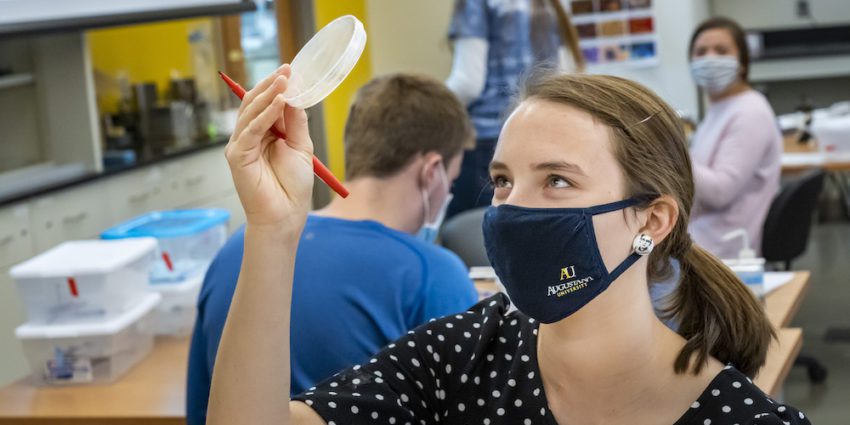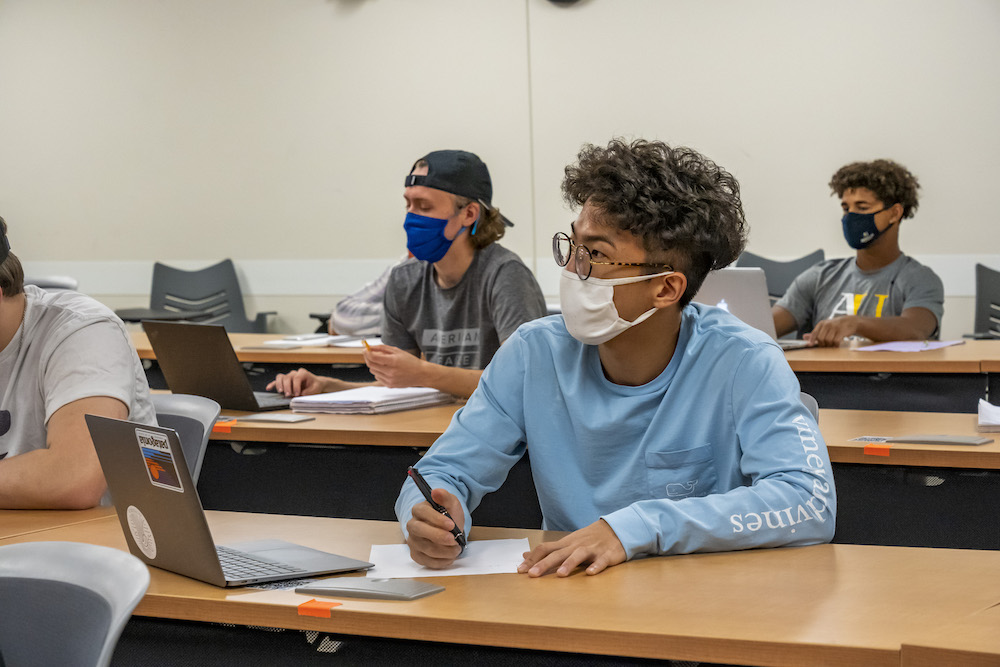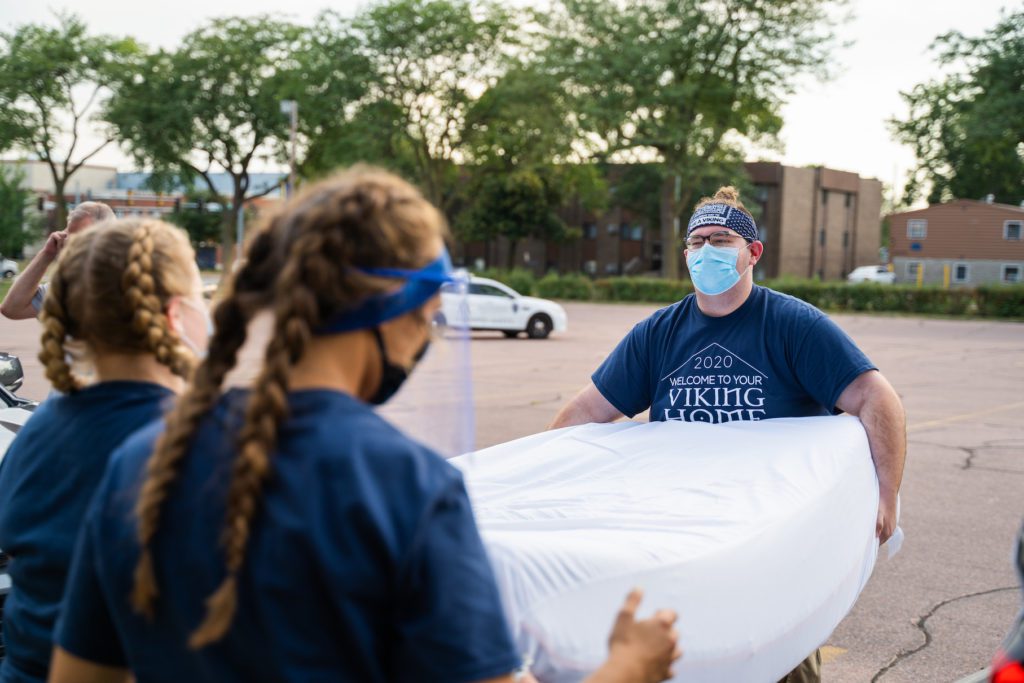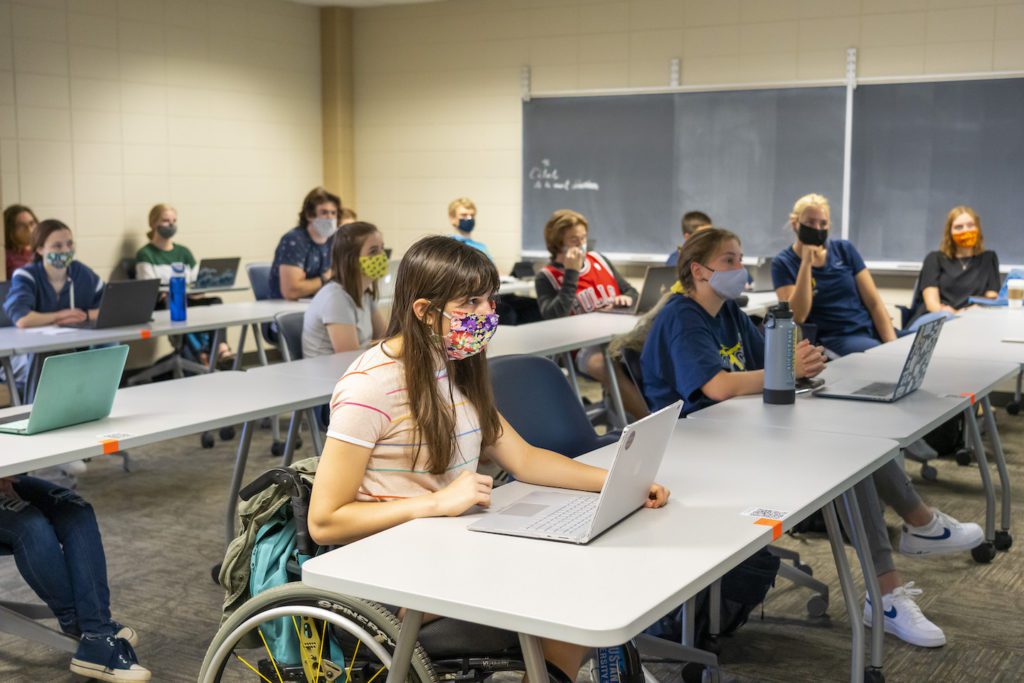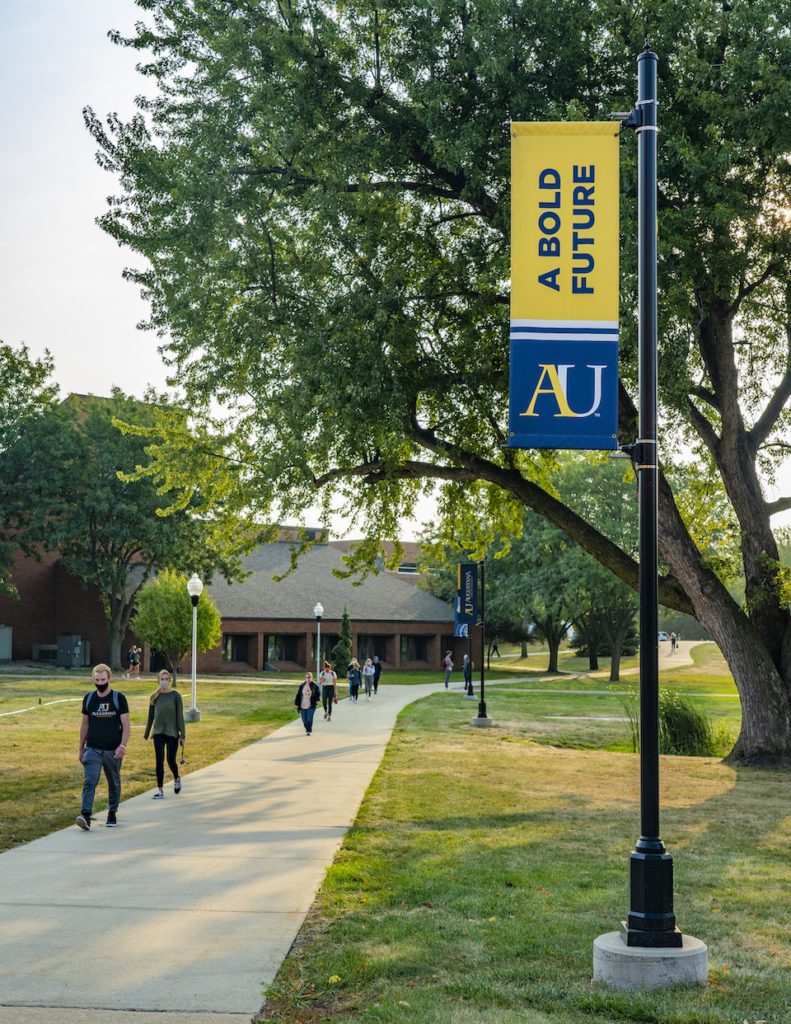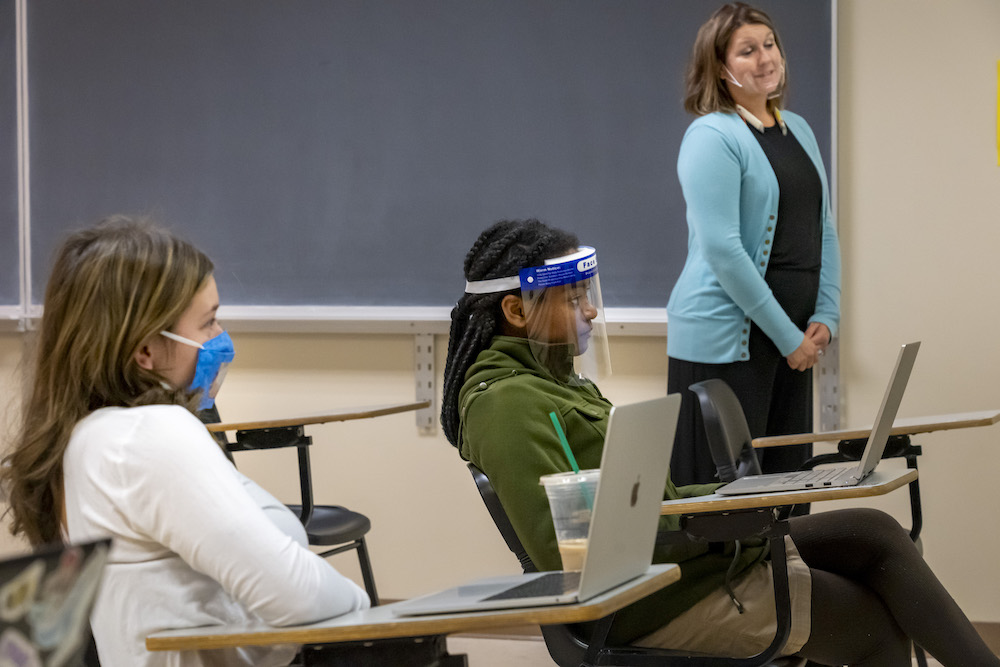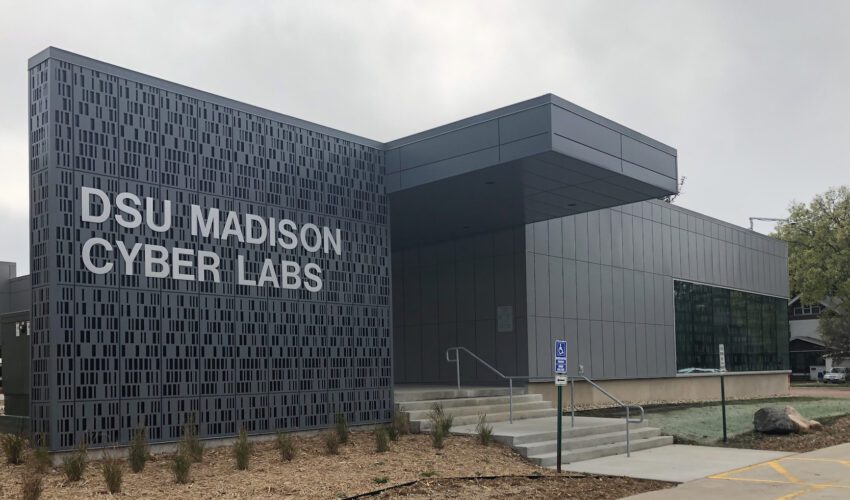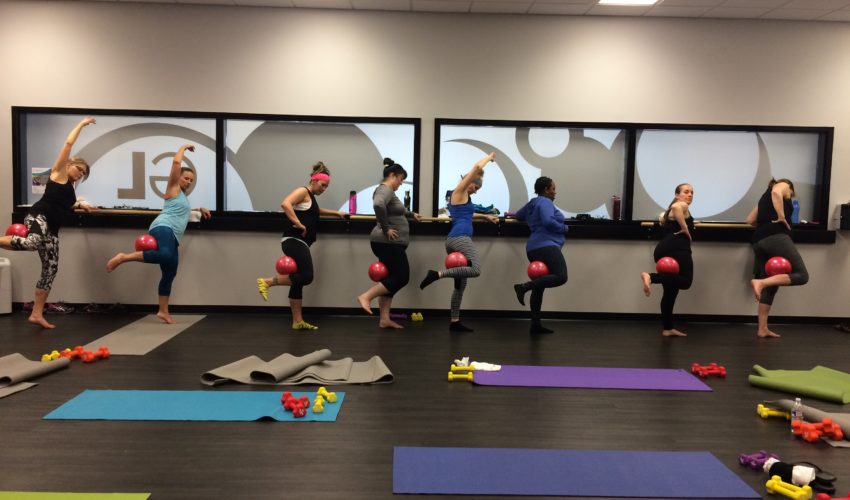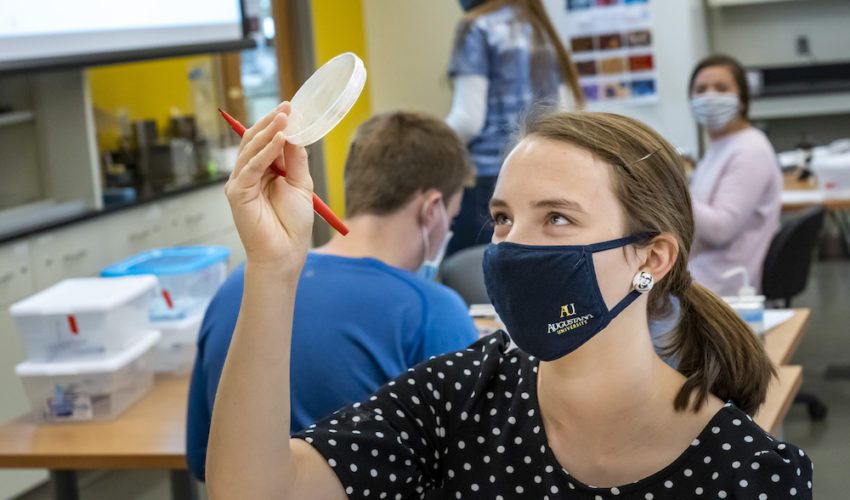Augustana University sees success in Viking Flex, continues plan into January and spring semester
Oct. 7, 2020
This paid piece is sponsored by Augustana University.
Augustana announced today that the university will continue with its Viking Flex Plan for its January interim and spring semester 2021. The plan includes a hybrid/flexible approach to learning, which includes both face-to-face and virtual components to most courses, fostered by a heavy investment in technology and training.
AU will not be sending students abroad or hosting groups of visiting students in January, but there are many course options available on campus. The university is leaving it up to faculty to determine whether to deliver them in-person or online.
“January has always been a special time on Augustana’s campus. You’re usually taking one class, it’s in-depth, it’s intensive. We’re allowing for a bit more flexibility on how courses are offered in January just because we want to make sure that we provide the best education in that format, and that might vary from course to course based on its needs and the needs of the students,” said Dr. Joel Johnson, Viking Flex academic working group co-chair and professor of government and international affairs.
While not much will change with the Viking Flex approach in spring, there have been a couple of changes to the academic calendar.
“We combined spring break with Easter break — we’re just trying to strike a balance between recognizing the fact that students and faculty both need a bit of a break each semester, of course, with the fact that we want to limit travel off campus as much as we can with the idea that doing so will limit the number of cases brought back to campus,” said Ben Iverson, scenario planning task force chair and director of international programs and enrollment.
“We’ve added a reading day, an extra study day at the end of the semester, but the number of class days stays the same.”
Like most institutions, Augustana has seen some positive COVID-19 cases during fall semester, but the university has been able to limit any spread, and overall, the Viking Flex Plan ultimately has been deemed a success.
“The way that we set up the Viking Flex Plan has truly allowed us to maintain as normal of a campus flow as we could have in this new environment,” said Rick Tupper, associate vice president for safety and logistics.
“The plan has really allowed us to maintain these face-to-face classes, have some events on campus and maintain living on campus as well. The plan has allowed us to maneuver through all of the changes over the last weeks and months and created that flexibility to make sure that we can maintain that sense of normalcy.”
Operational success
Augustana was one of the first colleges or universities in the area to announce its plans for fall in the midst of the global health crisis. The Viking Flex Plan was announced in mid-May, but the university started having conversations about COVID-19 before the novel coronavirus even reached the United States. Augustana’s risk assessment team began meeting daily during the winter months. In March, the university announced that students would be taking an extended spring break and then transitioning to online learning for the rest of the spring semester.
“Early on in this pandemic, there weren’t a lot of decision-makers or people providing direction nationwide,” Tupper said. “As you’re looking to the outside world, everyone is asking ‘Well, what are you doing? No, what are you doing?’ And, nobody was doing anything. At some point, you just had to do, and you start collecting as much data as you can from all of the resources and start making decisions on what would work best for us. I’m pretty happy that we made decisions early on because we had a laundry list of decisions we had to make.”
That laundry list includes conducting campus visits and town hall meetings; moving students in and out of residence halls; providing students, staff, faculty and administration with connectivity; developing heightened cleaning and safety protocols for classes and events; preparing quarantine and isolation housing; delivering meals to students; as well as contact tracing — just to name a few. That’s in addition to everyday operations for the university.
“We’ve set it up in a way that I look at classrooms as being kind of a safe zone, from a contact tracing (standpoint); we don’t have to worry that we’re putting people in unsafe environments,” Tupper said. “Just from the data that we have on our campus, I see that the classrooms aren’t a concern to me and neither are the residence halls, fortunately. The spread that we’ve seen really comes from those close long-term contacts with people living in small environments off campus.”
Tupper, who has worked at Augustana for 18 years, said none of this would be successful if the students didn’t participate and buy into the plan. At the beginning of the semester, all Augustana students and employees were asked to commit to its Viking Flex Health and Safety Pledge.
“When you walk across campus, for the most part, everyone is wearing a mask. That’s helped us maintain our numbers, along with the physical distancing. Our students want to be on campus; they want to be here. And for them to be here, they know they have to be a player for that to happen, and they have been,” he said.
And when a student has either tested positive for COVID-19 or been deemed a close contact to someone who has, Tupper said it has been important to let students know they haven’t been forgotten.
“We have one person who is doing many of those calls, and she says all she gets are thanks and gratitude for the phone calls,” he said. “We kind of first thought students were going to go ‘Eh, don’t call us, just let me know when I can come back,’ but she’s finding that contact from the university actually means a lot — knowing they aren’t just out there on their own.”
Academic success
Over the summer, in addition to the risk assessment team, Viking Flex operations and academics working groups were formed at Augustana to begin assessing and making plans for academic year 2020-21. Those groups continue to meet weekly, if not daily, as needs arise.
“We spent so much time this summer planning for what fall semester would look like, what instruction would look like, what safety would look like on campus because it’s not easy to keep a residential community safe, and yet we’re doing it pretty well. I think we’re going to continue to do that even when the cold sets in,” Johnson said.
And Johnson said this hasn’t just been a top down sort of planning process — it has been collaborative.
“The (academics) group I work on has faculty from all of the divisions, people who are experts on biology, nursing; these kinds of perspectives are crucial. We have people from all different professorial ranks — people in their first couple years to people who have been here forever. We have student representation, and I don’t know how many times we have had to turn to our student reps and say, ‘What do you think about this? What have you been hearing?’ and that’s actually been really useful.”
While Johnson has been teaching at AU for 17 years, he said it sometimes feels like his first. He said faculty have taught courses a number of times before, but because of the pandemic, they’re having to rework them — making them more nimble but also better.
“I think our professors are really rising to the challenge,” he said.
“We’re engaging in all kinds of new technology, we’re trying out creative learning strategies, so the objectives of each course can be met by individual students regardless of their particular needs. We have a few students who are completely online this semester, but most people are taking courses in some kind of an in-person or hybrid fashion, so there’s a substantial in-person component, which is what we do particularly well here at Augustana. We want to make sure that we don’t lose that, but we can supercharge it with the addition of all these new technological tools that allow us to remain connected with each other over a distance.”
And even when technology isn’t cooperating, they’ve been asked to quarantine or perhaps their Viking Days experiences aren’t what they used to be, the students have been patient and understanding — they’ve been more than willing to make the sacrifices needed to live and learn safely on campus.
“Even with these rather unprecedented circumstances on campus, students overwhelmingly say ‘I want to be here.’ I think because students are committed to the plan, success will continue. We’re very optimistic about our ability to stay safe and together moving into January and spring semester,” Iverson said.

